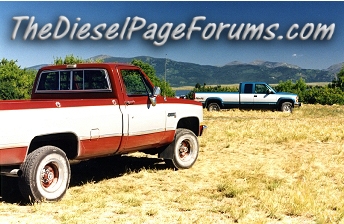
I have been running B2 bio-diesel for a long time now and at one stop I make for Fuel in Charlotte Michigan has B20. My truck runs wonderful on it. To be honest, I notice no difference. Maybe alittle quieter. But who knows.
I'd rather give my 2 cents a gallon to US companies.
Some of this compaint sounds like the old friend of a friend said stuff. Take it from the people that run the bio-diesel instead of uneducated comments.
This is definately one of those things that are a choice for everyone and not everyone will make it.
BTW, my company has a fuel station and every single semi that runs diesel has run B2 throughout the harvest season with no problems. We are talking a lot of miles and a lot of idle times, a lot. Not 1 single problem or complaint I've heard. As a matter of fact our larger farms are requesting higher mixture then B2 for farms use. Now dudes, we are not talking some 50 thousean dollar truck here, we are talking 100,000's of thousands in equipment on these farms running bio-diesel. No problems.
I like the product and prefer to fill with it. I feel lucky to have the choice of using it and and greatful that my company offers it.
2002 Green Chevy, duramax/allison, crew-cab 3500. Pulling a 36 foot, triple axle, triple slide, Travel Supreme fifth wheel. I run B2 bio-diesel most fillups.<br /> <a href=\"http://photos.yahoo.com/duramaxscott\" target=\"_blank\">http://photos.yahoo.com/duramaxscott</a> <br /><br />Only mod, soon to install Allison deep pan.










